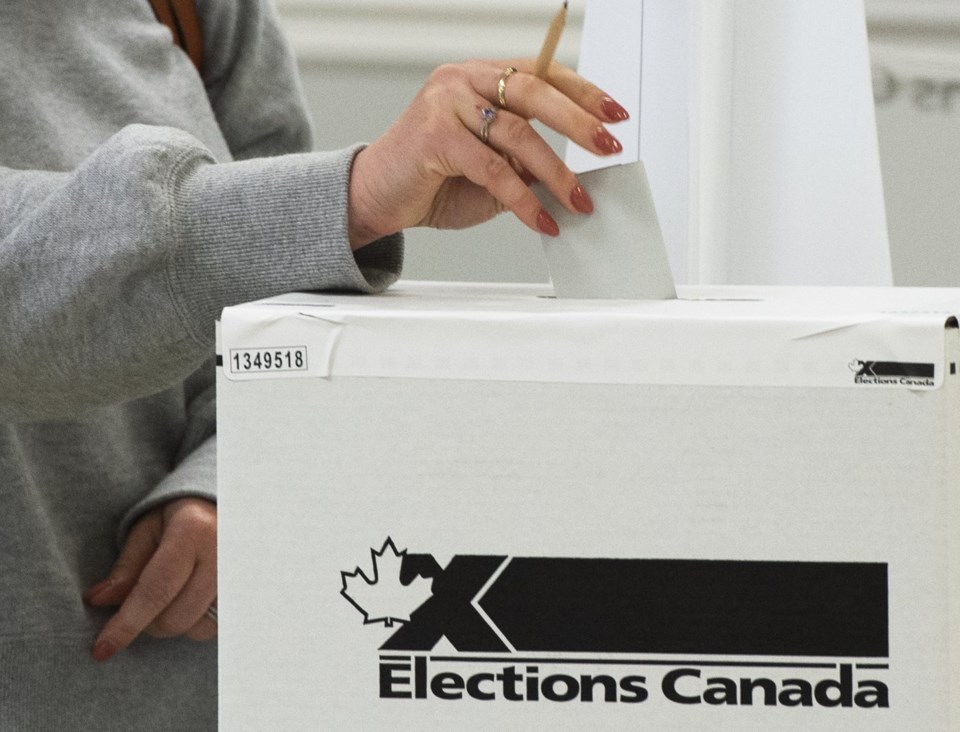MONTREAL ‚ÄĒ An upcoming byelection in Montreal will have the longest ballot in the history of Canadian federal elections, breaking a record set earlier this summer in Toronto.
At least 91 candidates will be on the ballot for the Sept. 16 byelection in LaSalle‚ÄĒ√Čmard‚ÄĒVerdun, according to Elections Canada. Seventy-nine of them are linked to the Longest Ballot Committee, a group protesting Canada‚Äôs first-past-the-post voting system. The group wants a citizens‚Äô assembly to be in charge of electoral reform, because they say political parties are too reluctant to make the government more representative of the diverse views of the electorate.
Elections Canada's final list will be available Wednesday.
S√©bastien ‚ÄúCoRhino‚ÄĚ Corriveau, an organizer of the protest and leader of the satirical Rhinoceros Party, hopes the campaign will raise awareness about electoral reform and proportional representation.
‚ÄúIt‚Äôs a ridiculous way of doing stuff,‚ÄĚ he said. ‚ÄúBut we did try other ways before, and everything failed.‚ÄĚ
Corriveau said when committee members went door-to-door asking for signatures to get prospective candidates on the ballot, one out of two people signed the papers. ‚ÄúThe voting system is not the day-to-day concern of anybody in Canada right now, but people do agree it has to change,‚ÄĚ he said.
On June 24, the results of a byelection held in Toronto‚ÄĒSt. Paul‚Äôs were delayed for hours after 84 candidates signed up to run, including 77 linked to the Longest Ballot Committee.
Elections Canada printed ballots that were nearly a metre long, with two columns of names. The agency said that compared with usual elections, the enormous ballots took longer to unfold and tally, and more ballot boxes were required to hold them.
In the end, the final count wasn’t released until after 4 a.m. the following morning, when results showed Conservative candidate Don Stewart had unseated the governing Liberals, who had held the riding for more than 30 years.
Corriveau said he‚Äôs not hoping to have any impact on the outcome of the election, but he said the point the group is making it worth the inconvenience to voters. ‚ÄúThe system is rigged, and the rules are written by the winner,‚ÄĚ he said.
Many of the candidates who ran in Toronto are on the ballot again in Montreal, including Donovan Eckstrom, an Albertan who describes himself on Facebook as the ‚Äúcandidate for an independent Alberta with LaSalle‚ÄĒ√Čmard‚ÄĒVerdun.‚ÄĚ
In a video posted to Facebook, Eckstrom promises to ‚Äúreplace all of Quebec‚Äôs dairy cows with the vastly superior Albertan beef‚ÄĚ if elected.
Another familiar name is Felix-Antoine Hamel, who made headlines in June for being the first candidate in Canadian electoral history to receive zero votes.
Dennis Pilon, chair of the politics department at York University, said electoral reform advocates have been frustrated by the unwillingness of Canada’s major political parties to change the country’s voting system.
Prime Minister Justin Trudeau campaigned in 2015 on a promise that it would be the last federal election under the first-past-the-post system, but then broke that vow in 2017.
‚ÄúWhat we're seeing here is that when rational discussion doesn't work, then advocates of change turn to mockery,‚ÄĚ Pilon said. ‚ÄúIndividual voters might be somewhat put off by having to scan a huge ballot to find their choice. But on the other hand, we often talk about citizens needing to step up ‚Ķ and this is a form of engagement.‚ÄĚ
Corriveau said he doesn’t know whether the committee will run campaigns in future elections.
The Montreal byelection follows the resignation of former Liberal MP and cabinet minister David Lametti, who had held it since 2015. Former prime minister Paul Martin held the LaSalle‚ÄĒ√Čmard seat, which preceded the current riding, from 1988 to 2011.
But the Liberals’ declining political fortunes could put the riding up for grabs this time around, with some polling suggesting a three-way race between the Liberals, NDP and Bloc Québécois.
The Liberal candidate is Montreal city councillor Laura Palestini, whose selection angered other aspiring candidates who were upset the party opted not to hold an open nomination process.
The NDP has nominated Craig Sauvé, another Montreal municipal councillor, while the Bloc candidate is longtime political staffer Louis-Philippe Sauvé. Business owner Louis Ialenti is running for the Conservatives.
The byelection will mark the next major test for the Liberals following their surprise loss to the Conservatives in Toronto‚ÄĒSt. Paul‚Äôs.
This report by The Canadian Press was first published Aug. 27, 2024.
Maura Forrest, The Canadian Press




